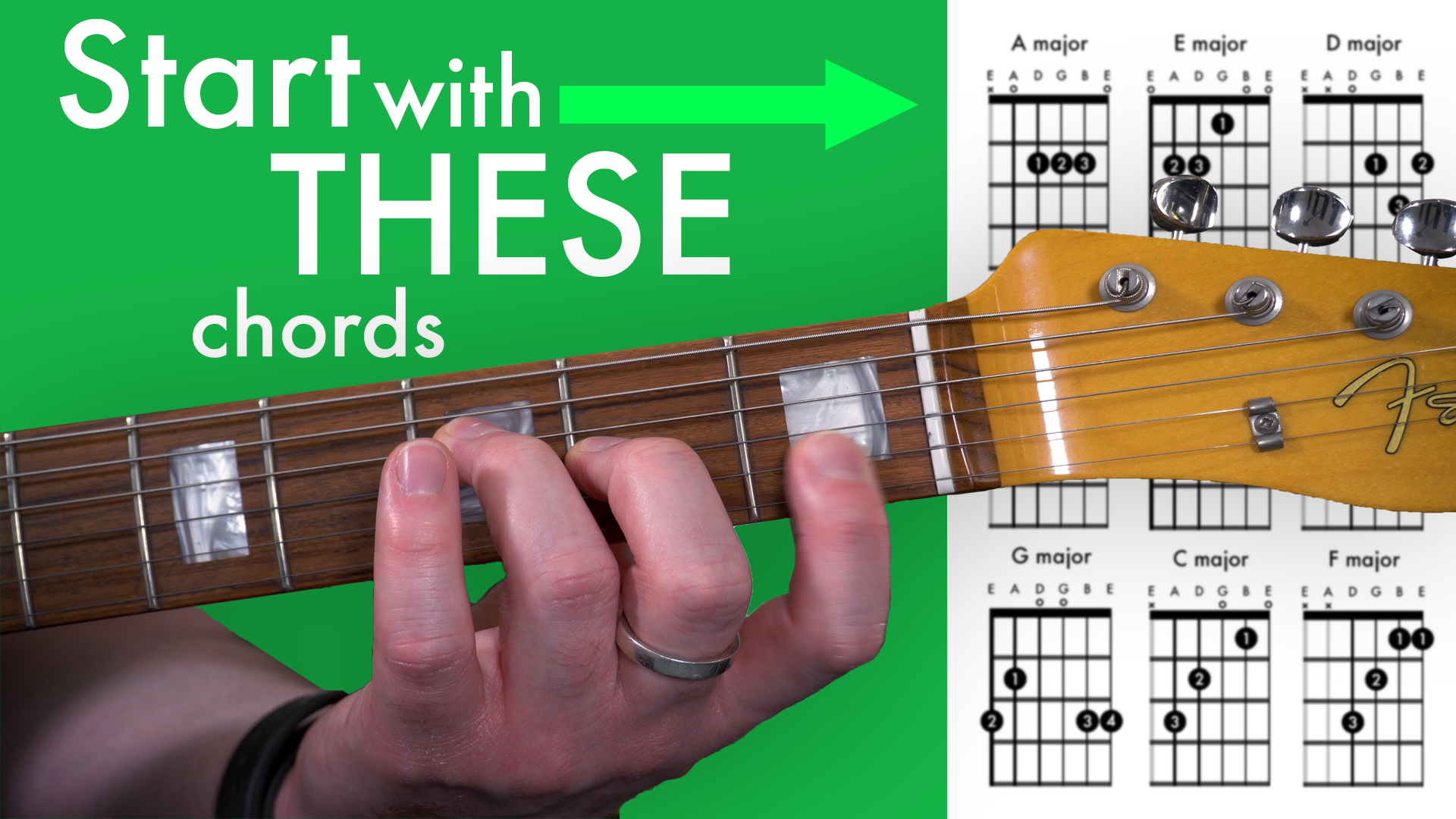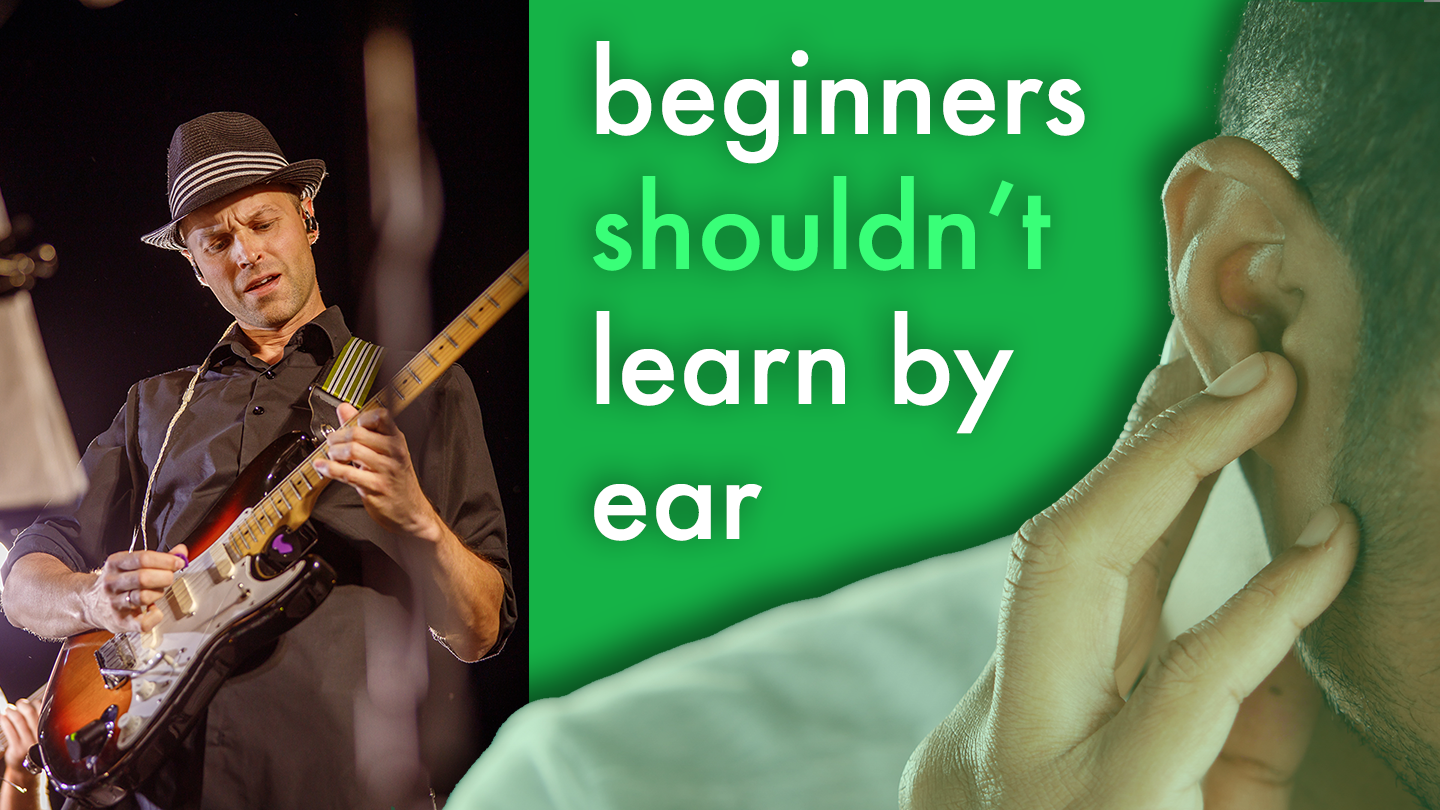A conversation about practice
Does not wanting to practice mean you should give up?
There’s a popular idea in productivity circles that if you have a task that’s going to take 2-5 minutes to complete, you should just do it right now. I think that’s good advice. In my own experience, I’ve been guilty of putting things on the to-do list, putting them off and then putting them off again. In reality, I probably could have done the thing in the time it took me to add it to the to-do list in the first place.
I had a student who was trying out this productivity idea and realised he’d added his guitar practice to the list of tedious chores he needed to get done.
He’d started thinking of his guitar practice as a chore.
Here’s the thing:
Not all our practice is going to be fun; we're not always going to enjoy it.
And that’s okay. Not being super enthusiastic about every practice session doesn't mean that we don't like playing the guitar. I don’t enjoy all the guitar practice I have to do; I’m not as disciplined as I want to be and playing guitar is my job!
I’ve been playing the guitar for over 25 years and I’ve found practice isn’t always fun on a micro level. But in a macro sense, I enjoy it. I like the process of getting better. I like being able to do more on the instrument than I could before (even if the process of getting there is challenging).
I’ve met guitar players who say that you should always enjoy practice and it should always be fun. I disagree. I don't think practice is always fun. I'm sure there are exceptions. People who enjoy practising the guitar every single time they pick up the instrument, no matter what. But these people are rare. For these unique individuals, playing the guitar is the only thing they want to do.
All day.
Every day.
I’m not that person and you’re probably not either (otherwise you’d be practising guitar right now, rather than reading this). It’s okay to also have other interests in life and that doesn’t make you any less of a guitar player. If people are honest, I’m sure they will admit there are times when they don't want to do the thing that they love. But that love is expressed through the commitment they have to get better at the thing. Even though they don’t want to sometimes.
We also need to take into account the fact that we live in a society that tends to encourage dopamine-reinforcing behaviour. We play video games, endlessly scroll through social media, and binge-watch the new show on every streaming service. We tend to prioritize the things that feel good because they give us more dopamine. Sometimes, the reason we don’t want to practice isn’t that we don’t like guitar; it’s actually just because we need to exercise a little discipline in a world that continues to bombard our brains with stimuli designed to make us feel good and keep coming back for more. It’s often easier to give in to all the things vying for our attention than it is to sit down and focus on the aspect of guitar playing you’re currently finding challenging.
If you made your life stupid simple; if you cut back everything that gave you dopamine and only practised the guitar, you’d probably enjoy it more than you currently do. I'm not saying you should do that, but I think it's an interesting idea to be aware of. If we understand how dopamine works, we are able to better respond when we find ourselves in a situation where we need to practice the guitar (because we enjoy playing the guitar on a macro level) but don’t really feel like it (because it’s not the most fun activity we could be doing on a micro level). We can choose to exercise some discipline because we have long-term musical goals we want to achieve. I don't enjoy playing the guitar all the time. But when I think about like my life on a macro, I know I want to be a professional musician, I want to do music full-time. Therefore, I probably should practice, even if I’m not enjoying every minute of it.
It’s also important to realise that we all have other things going on in our lives. How are you feeling healthwise? Are you getting enough sleep? Are you stressed at work? These are all factors that affect how motivated you are to practice the aspects of guitar playing that aren't necessarily the most fun. When we understand that all those these things affect our motivation and desire to play the guitar, it can help us contextualize the feeling of not wanting to practice.
Remember, experiencing a lack of motivation in the micro does not mean you don’t want to play the guitar in the macro.
But do I need to learn music theory?
Learning music is about going through a process of integrating our three types of understanding (intellectual, physical, and aural). Unfortunately, a lot of people find music theory boring and seemingly irrelevant because they try to learn more of it than they can integrate and apply at any given moment. Of course, they are going to find it boring!
If you’re trying to learn music theory that’s not related to your current goals on the instrument then you’re wasting your time. But this doesn’t mean learning music theory, in general, is irrelevant. What you need to do is make sure you are developing a very thorough and usable understanding of the music theory relevant to what you are actually learning on the instrument. This way, you’ll be able to better integrate your intellectual understanding of music theory with everything you are learning physically. Once you do this, music theory won’t seem dry and boring. You’ll find it starts to become extremely useful and you’ll find yourself wanting to learn more!
Learning music theory this way allows us to build a strong musical foundation that’s tightly integrated with what we are doing physically on the instrument and one that makes sense in terms of what we hear when we play. If we take care to build this musical foundation, we are able to easily contextualise new information and place it exactly where it’s supposed to be. You’ll find new concepts are easier to remember because they just make sense in regard to the wider understanding of music theory you’ve already developed.
Students who ‘don’t like music theory’ start to develop resentment because what they are learning isn’t helping them play the guitar any more effectively. It doesn’t seem relevant and they’re probably right. If you’re not enjoying learning music theory, what you’re learning probably isn’t relevant. From my experience, I’ve found these problems can only develop when you start trying to add music theory that you’re unable to integrate with your physical and aural understanding. Random information you're expected to learn for no other reason than knowing it. Yuck.
Playing guitar is the least important part of your practice
A common misconception students have when they start learning guitar is that in order to get better they have to spend more time physically playing the instrument. Ironically, when you’re starting out, your progress is more significantly affected by the time you don’t spend playing the guitar.
Let me explain,
Your progress on the guitar is affected more by what’s going on in your head than what’s going on in your hands. If you’re not thinking correctly about what your body needs to be doing, it’s not going to work out very well for you. Are you visualising the shape correctly? Do you know exactly what each finger is doing as it moves from one chord to the next? Do you know what to focus on exactly in order to maximize your progress with each aspect of your practice?
When you’re starting out your brain is like a personal trainer. Its job is to understand exactly what is supposed to be happening from a technical point of view and then supervise your fingers as they physically execute the movement. For example, when you’re starting out, it’s unlikely that you’ll have the strength and dexterity in your hand to do everything you need to in order to get a fantastic-sounding chord. It might even feel uncomfortable holding your hand in the correct position. If you simply practice what feels easiest, you’ll end up taking shortcuts and will ultimately end up damaging your progress in the long term. Instead, you should aim to engage your intellectual understanding, making sure you're clear on exactly what good technique looks like and why moving in that direction (even when it’s challenging) will allow you to develop the strength and dexterity you’ll need to be successful in the future. Learning how to engage your intellectual understanding in this way and working to properly integrate it with what you are doing physically is arguably the important thing you can practice when you’re starting out.



A guitarist who has learned all the notes on the fretboard: Can more effectively learn scales and chords; Has a better understanding of keys, intervals, and scale degrees; Is able to more easily memorise songs; Has a greater capacity to understand music theory; Is more effectively able to develop their aural skills; Gets ‘lost’ far less frequently when they are improvising on the guitar.